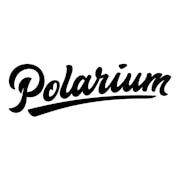Empty dropdown
Notes:Based on a set of 17,000 unique companies that raised funding between 2018 and 2022YTD. 2022 is annualised based on actuals up to October and annualised on the basis of the three months of August to October.
Tech is a tool which can be used to help or harm, but it holds the potential to be part of the solution addressing the many crises humankind faces. Most would agree that a key priority for the next decade is to achieve a sustainable future for all, as outlined by the UN's 2030 Sustainable Development Goals (SDGs).
Through a collaboration with Dealroom, dating back to 2019, we have been able to quantify the investment from both tech talent and investors aimed at addressing these challenges. Dealroom manually tagged keywords to companies in its platform across all 17 SDGs, and tagged companies with purpose at either the core of or adjacent to their business model. Through this exercise, we can measure the direction of travel for tech as a motor for progress. Full notes on the methodology are available in the report appendix.
of LPs chose to not commit to a GP relationship primarily due to ESG concerns.
of VCs said they have been placing even more emphasis on social and environmental impact since the beginning of 2022.
of VCs reported that sustainability was a regular item on the board agenda.
Over our years of producing this report, we've been early in identifying the emergence of two important cross-cutting themes: deep tech and purpose-driven tech.
Additionally, we have also charted the emergence and ever-greater presence of climate tech as a core theme at the heart of the European tech ecosystem. It is a cross-cutting theme that operates at the intersection of different sectors with a clear focus on reducing carbon emissions, and is aligned with Dealroom's definition of Climate Action SDG (excludes clean energy). The trends of the past five years in these areas have once again risen to the top in 2022, setting new records in terms of total capital investment into purpose-driven tech and climate tech. Deep tech investment also reached very strong levels in 2022, though it is approximately 25% down on the record-breaking levels of 2021. This still represents, however, a near-doubling versus the levels in 2020.
The themes of sustainability and deep tech are becoming increasingly linked. In fact, an analysis of the top 10 largest deep tech rounds raised by European tech companies in 2022 shows that many of them have sustainability embedded at their core. Climeworks, for example, which is working on direct air carbon capture and storage, raised a $650M Series F round to continue to push as a global leader in the carbon removal industry.
| Company | HQ | Funding round | Focus | |
|---|---|---|---|---|
| 1 | Climeworks | Switzerland | $650M Series F | Direct air carbon capture and storage |
| 2 | Volocopter | Germany | $352M Series E | Electric vertical takeoff and landing vehicles |
| 3 | Exotec | France | $335M Series D | Industrial robotics |
| 4 | Newcleo | UK | $315M Early VC | Nuclear fission |
| 5 | H2 Green Steel | Sweden | $255M Series B | Production of fossil-free steel |
| 6 | Wayve | UK | $200M Series B | Autonomous vehicles |
| 7 | Carbon clean solutions | UK | $150M Series C | Industrial carbon capture solutions |
| 8 | ICEYE | Finland | $136M Series D | Earth observation micro-satellites |
| 9 | IQM | Finland | $128M Series A | Quantum computing |

The fact that ESG has continued to be a pocket of growth this year, even amid the downturn, shows that investors are taking a long-term view when it comes to Europe’s priorities. The events we’ve seen over the past year, particularly the squeeze on energy supplies resulting from Russia’s invasion of Ukraine, underscore why sustainability must continue to be front of mind. It’s essential that companies at every stage of the supply chain are supported, from producing energy, to making sure its end users are able to operate as sustainably as possible, whether that’s retailers or consumers. While the big picture is critical, it’s crucial that no part of the downline is left behind.
Over the past five years, investment in purpose-driven tech companies has increased at a huge scale on a global basis, spiking materially in 2021 in all major regions. This growth has seen total cumulative capital invested in Europe into purpose-driven tech companies reach more than $54 billion since the start of 2018.
Interestingly, investment levels on an annualised basis in Europe look set to come very close to matching 2021's record-breaking amounts. By contrast, investment amounts in North America and Asia decreased by around 40% and 45% in 2022 compared to last year, respectively.
Purpose-driven tech is inching back towards the record it reached in 2020, representing close to one-fifth of total capital invested. While purpose-driven companies address any of the United Nations' SDGs, Planet Positive is a subset of SDGs which target sustainable use of the planet's resources. This year, Planet Positive companies gained further market share of the broader tech market, capturing 19% of total European funding so far this year, up from 15% last year. Year to date, this represents $10.3B invested in tech companies with Planet Positive themes.
Climate tech, the smallest subset addressing only SDG 13, Climate Action, stands at $6.9B YTD. While all three categories have exhibited upward trendlines since 2018, both 2020 and 2022 - two years defined by global crises - saw spikes in their share of overall investments.
On a global basis, Europe now accounts for the largest share (57%) of all investment going into early-stage purpose-driven tech companies, as defined by the share of capital invested in rounds up to $20M. This is very meaningful given Europe's share of overall global investment stands at 23% only.
For the earliest stages (i.e. rounds of less than $5M), Europe's share is even more significant, equating to 70% of all capital invested globally.
At later stages, however, Europe's share of global investment into purpose-driven tech companies is lower: for rounds of $100M+, Europe has a 41% share.
The increased level of investment into purpose-driven tech companies has translated into a growing number of breakout companies emerging from Europe with purpose at their core. There are now 42 European unicorns classified as purpose-driven, a close to threefold increase from 15 just three years ago in 2019. As a result, purpose-driven unicorns now account for 12% of all European unicorns.

SDG 4: Quality Education

SDG 3: Good Health and Well-being

SDG 7: Affordable and Clean Energy